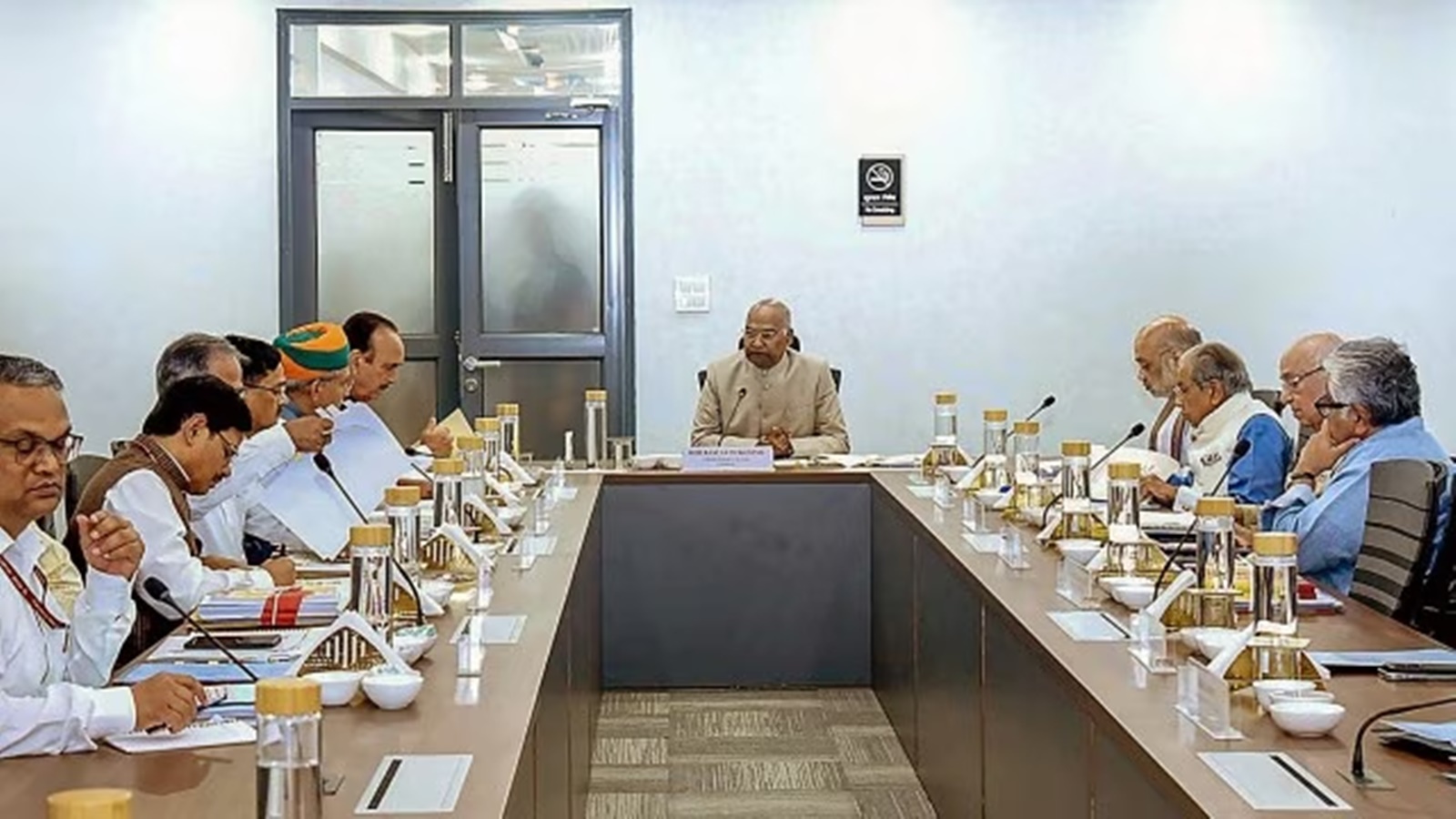

Modi 3.0 Aims to Fast-Track One Nation, One Poll Strategy
The Centre is set to present the report of the high-level committee, led by former President Ram Nath Kovind, on “one nation, one election” to the Cabinet for future action. After Cabinet approval, a Bill may be introduced in Parliament during the Monsoon Session in July, marking the first full session of Narendra Modi's third term as Prime Minister. The annual Budget will also be introduced at the session's start.
<button class="rounded-lg text-token-text-secondary hover:bg-token-main-surface-secondary"></button><button class="rounded-lg text-token-text-secondary hover:bg-token-main-surface-secondary"></button><button class="rounded-lg text-token-text-secondary hover:bg-token-main-surface-secondary"></button>
<button id="radix-:r5g:" class="cursor-pointer rounded-md px-1 text-token-text-secondary h-[30px] hover:bg-token-main-surface-secondary" type="button" aria-haspopup="menu" aria-expanded="false" data-state="closed"></button>
Modi 3.0 Aims to Fast-Track One Nation, One Poll Strategy

The Centre is set to present the report of the high-level committee, led by former President Ram Nath Kovind, on “one nation, one election” to the Cabinet for future action. After Cabinet approval, a Bill may be introduced in Parliament during the Monsoon Session in July, marking the first full session of Narendra Modi's third term as Prime Minister. The annual Budget will also be introduced at the session's start.






 OpinionExpress.In
OpinionExpress.In















Comments (0)